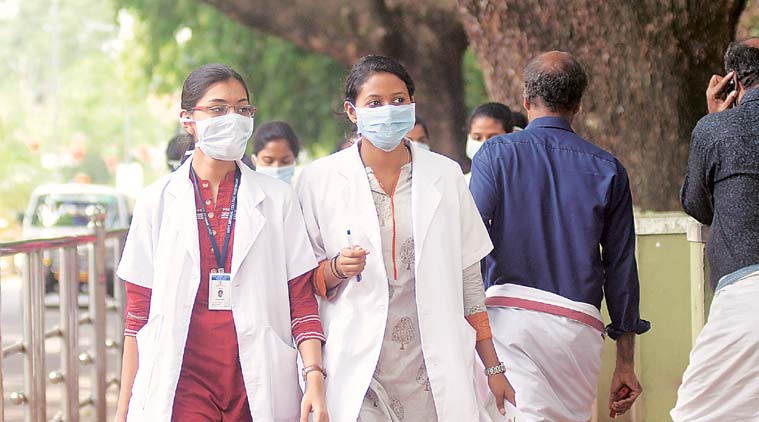 In the wake of the outbreak, which has claimed 14 lives in Kerala so far, other states have also started sending samples of suspected cases to the NIV. (Representational Image)
In the wake of the outbreak, which has claimed 14 lives in Kerala so far, other states have also started sending samples of suspected cases to the NIV. (Representational Image)
Scientists from the National Institute of Virology (NIV) as well as Maharashtra health authorities have urged the public not to panic as the disease was not a “major outbreak”. The National Centre for Disease Control (NCDC) has also instructed state-level health officials to allay fears about the infection and refrain from issuing travel advisories.
Experts from a high-level team appointed by the Centre has also stressed that the Nipah virus infection was a local occurrence and it was limited to two districts of Kerala: Kozhikode and Malappuram.
The team from NCDC had, via video conference, assured that there was no need for the public to be apprehensive, Maharashtra surveillance officer Dr Pradeep Awate told The Indian Express. Meanwhile, NCDC officials said, “The Ministry of Health and Family Welfare is closely monitoring the situation…”.
In the wake of the outbreak, which has claimed 14 lives in Kerala so far, other states have also started sending samples of suspected cases to the NIV. “We are processing the samples 24 X 7 to address the anxiety among the public,” said NIV Director Dr D T Mourya.
There was no need to panic as the NIV and other agencies were monitoring the situation continuously, said Dr Atanu Basu, senior deputy director of NIV. “Citizens have been advised to follow health advisories, and to not heed any rumours,” he told The Indian Express.
After the declaration of the Nipah outbreak, three samples from Karnataka, two from Telangana and two from Maharashtra were tested, and all of them were found to be negative. Eight throat swabs of bats from Himachal Pradesh were also tested and they were negative as well, said NIV scientists.
Nipah virus commonly affects animals like bats, pigs, dogs and horses. It can spread from animals to humans.
As the virus is a biosafety level (BSL) 4 agent, universal, standard droplet and bio-containment precautions have to be followed during contact with excretions, secretions and body fluids of suspected cases. Adequate biosafety precautions also have to be adopted during collection,transport, storage and processing of clinical samples from suspected cases, said the scientists.